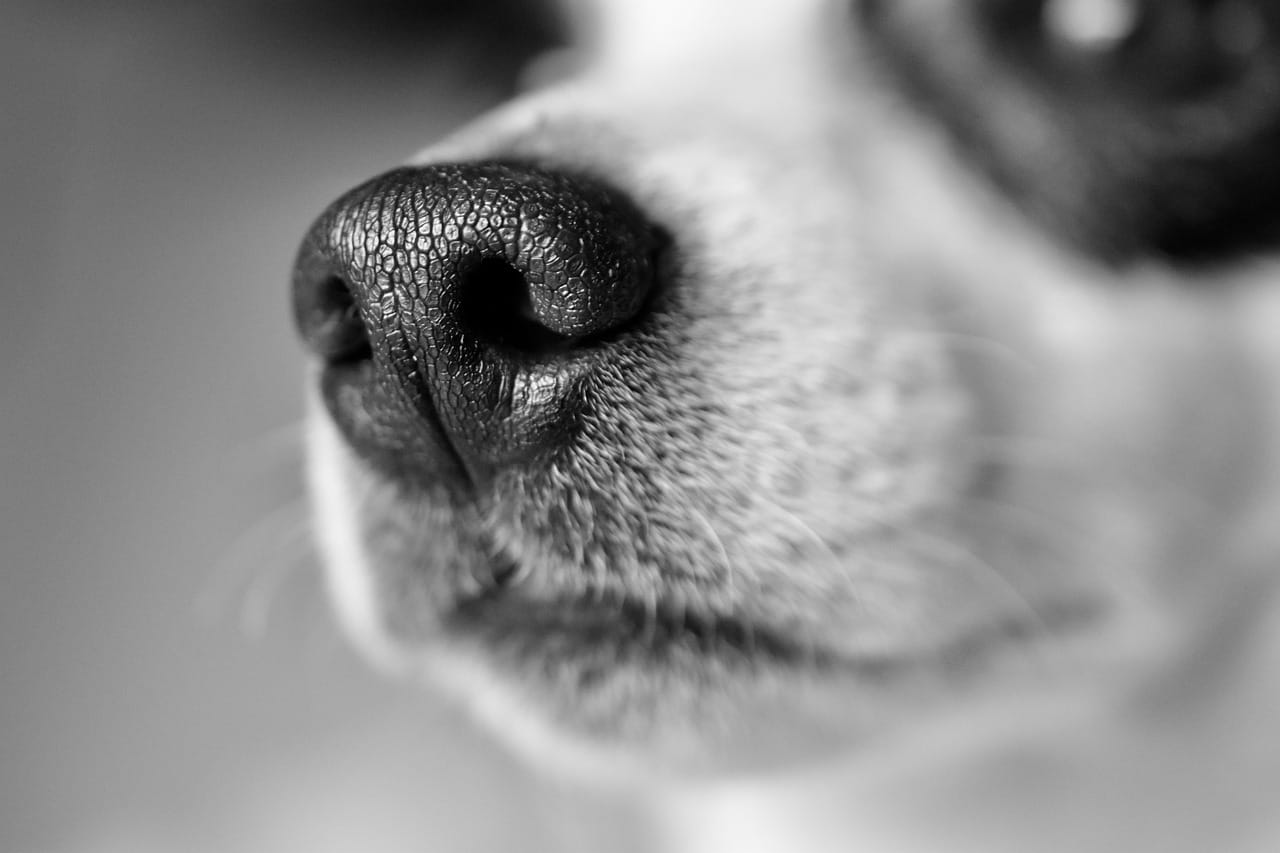
Without that chilly, wet nose rubbing up against your face, your dog’s slobbery licks aren’t the same. If your senior dog’s nose is dry or cracked, you should be concerned about more than the quality of their kisses. As one of a dog’s most vital attributes, the health of its nose is critical.
A dry nose is bothersome and, in the worst cases, painful. It can be a sign of a severe sickness, but it’s more often caused by a combination of environmental variables and the dog’s age. Senior dogs aged seven and up are especially vulnerable to dry noses. It lowers their quality of life, and you must assist them when their bodies cannot produce the moisture they require on their own.
Reasons Your Senior Dog’s Nose Is Dry
It’s Dog Health 101 to know that dogs’ noses should be cool and moist. Many dog owners become concerned when their dog’s nose becomes dry, but this is usually a minor condition that can be resolved quickly. The nose health of older dogs, however, is very significant. Here are some of the reasons why elderly dogs are more likely than younger canines to acquire a dry nose:
Extra Nap Time:
A sleeping dog will not lick its nose. It’s typical for a dog’s nose to dry up while they’re sleeping, and it might last up to 15 minutes after they wake up. Senior dogs sleep more than younger dogs, which deprives their noses of moisture from licking. And the longer it takes for their nose to naturally get wet again, the longer it will take.
Lethargy:
Dry nose affects both severe sleepers and dogs that are sluggish due to depression, arthritis, or another sort of ailment. They lay down most of the day, drifting in and out of sleep. Long periods of idleness might cause a permanently dry nose.
Allergies:
Like people, dogs can be allergic to almost anything. Sometimes, those allergies present themselves during puppyhood, but some dogs don’t develop allergy-related symptoms until their senior years. Those symptoms can irritate the dog’s nose, and excess rubbing and scratching can quickly dry it.
Dehydration:
If getting up is hard on your dog’s aging joints, there’s a good chance they’d rather stay on the couch instead of getting up to go to their water bowl when they’re thirsty. Senior dogs often risk becoming dehydrated, and not drinking enough water means there’s not enough moisture to keep their nose as wet as they should be.

Is it normal for senior dogs to have dry noses?
Yes, it is common for senior dogs to develop dry noses as they age. Extra sleep, lethargy, allergies, and dehydration can all contribute to dryness. While not necessarily abnormal, addressing a senior dog’s dry nose is still essential.
What to Do About Your Senior Dog’s Dry Nose
Keeping your senior dog hydrated and removing allergens from their surroundings will help keep their nose wet, but this isn’t always enough. Natural moisturizers that heal and soothe canine noses abound in nature. Shea butter, olive, almond, and coconut oil are safe, natural ingredients that enhance skin suppleness and help inflammation.
You can apply one of these substances directly on your dog’s nose. Olive oil, for example, is a gentle moisturizer that can help combat dryness. Just rub a small amount onto your dog’s nose once or twice a day. The oil will soak in and replenish moisture.
How do you moisturize a dry dog’s nose? There are a few practical ways to moisturize a dry dog’s nose:
- Apply a natural oil like olive, coconut, or almond oil to the nose. This will moisturize, soothe, and promote healing.
- Use a nose balm or salve specifically formulated for dogs. Look for moisturizing ingredients like shea butter and beeswax.
- Add moisture back into the air with a humidifier. This helps keep your dog’s entire body hydrated.
- Apply a thin layer of pet-safe, unscented moisturizer. Look for products designed for sensitive skin.
- Increase water intake to promote hydration from the inside out.
You can also combine several methods, like using a nose balm and running a humidifier to tackle dryness from all angles. Please be careful and gentle when moisturizing the nose.
Can I put olive oil on my dog’s dry nose?
Olive oil is safe and effective for moisturizing a dog’s dry, cracked nose. As a natural emollient, olive oil can penetrate the skin to add moisture. It also has anti-inflammatory properties to soothe irritation. Rub a few drops of olive oil gently onto your dog’s nose once or twice daily until the dryness subsides. Make sure to use pure, unscented olive oil that is safe for dogs. Check with your vet if the dry nose persists.
Can I put Vaseline on my dog’s nose if it’s dry?
Vaseline is not recommended for dogs with dry noses. While it may seem like an effective moisturizer, Vaseline can clog pores and trap bacteria. It also contains petroleum jelly that shouldn’t be ingested. Instead of Vaseline, use natural olive or coconut oil to moisturize your dog’s sensitive nose safely. You can also look for nose balms explicitly formulated for dogs that contain nourishing ingredients like shea butter, beeswax, and vitamin E. Check with your vet if your dog’s dry nose doesn’t improve.
In summary, various natural remedies can relieve senior dogs with dry, cracked noses. Be attentive to your aging pup’s needs, provide plenty of water, remove irritants, and apply gentle moisturizers. With some TLC and the right solutions, you can quickly help your best friend’s nose return to its normal, slobbery state.








Leave a Reply
You must be logged in to post a comment.